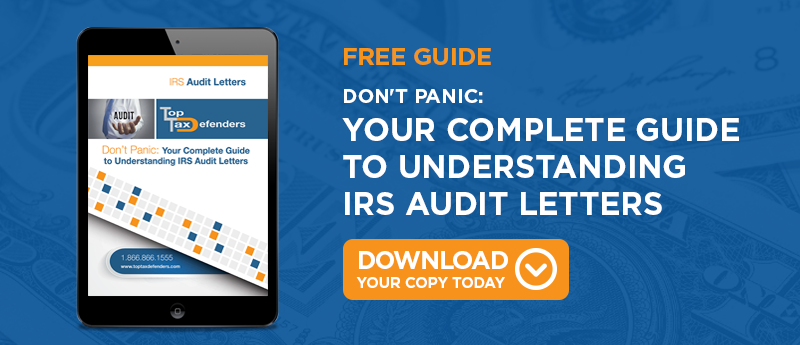
Just the thought of an IRS tax audit can make some taxpayers shake in their boots. In the past, the IRS conducted far more audits that it currently does. However, some people are still worried about the prospect of a "random audit". What are the actual odds of getting audited by the IRS?
How Many Taxpayers Get Audited by the IRS?
First of all, it's impossible to know if a particular tax return will trigger an audit. As a result, it's best to simply prepare your return as honestly and correctly as possible. This will offer you the best protection in case your return is selected for review.
As for the actual odds of an IRS audit, they are very, very low for the average taxpayer. For example, in the 2012 tax year, the IRS received a total number of 143,400,000 federal income tax returns. Of those returns, only 1.4 million were audited - a figure equal to just one percent of tax returns.
For the most part, taxpayers who had the highest audit risk were those who earned more than $200,000 annually and also filed a Schedule C or Schedule E with income of more than $25,000. Even corporate returns are rarely audited, unless companies have more than $10 million in assets.
How to Reduce the Risk of an Audit
A few specific tax practices may cause the IRS to give your return a second look. Claiming an unusually large amount of deductions, particularly if you have not done so in the past, may trigger a red flag. Deducting business losses over several years may lead the agency to question the validity of your claims. Reporting a high amount of deductions that can be exaggerated easily, such as travel and entertainment expenses, could also increase your audit risk.
So, how you can reduce the likelihood of having your return flagged for an audit? In most cases, you can do so by simply following the IRS guidelines. Make sure you qualify to claim the expenses and deductions you list. Never, never inflate your expenses. Always keep supporting documents of your claims such as receipts and bank statements.
What to Do If You're Audited
If you receive a letter that your return has been flagged for an audit, do not panic. You'll probably find that the return in question is one you filed a year or more ago. Find your return and your relevant documents and review them as soon as possible to make sure you reported everything correctly.
Talk with an experienced tax lawyer, a Certified Public Accountant, or an Enrolled Agent who can explain the audit process and, if necessary, represent you at the audit. Speaking with a tax expert can give you confidence going into the review process.
It's also important to remember that not all audits turn out badly. In fact, many taxpayers who are audited actually end up getting a larger refund than they previously reported.
No one wants to deal with a tax audit, and the good news is that few people do. Once you learn how low your audit risk is, you can rest easier after you submit your tax return to Uncle Sam this year.




